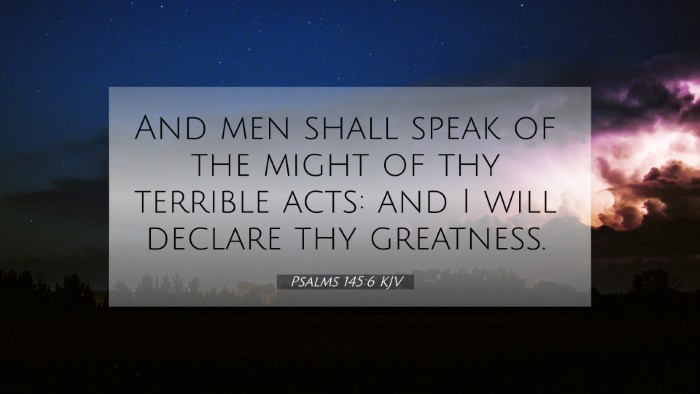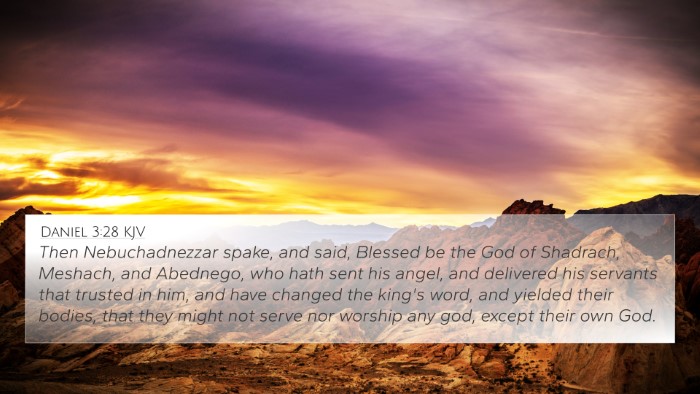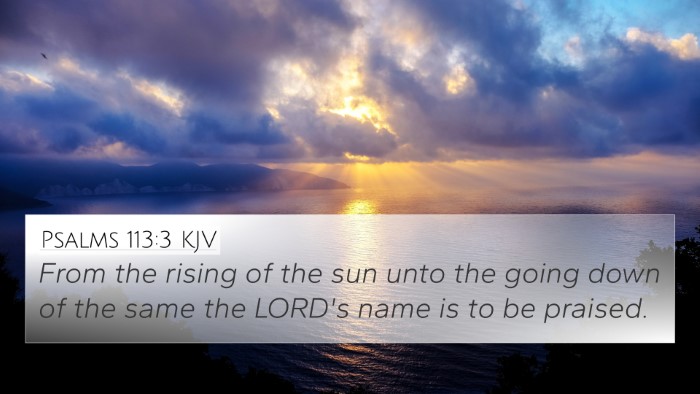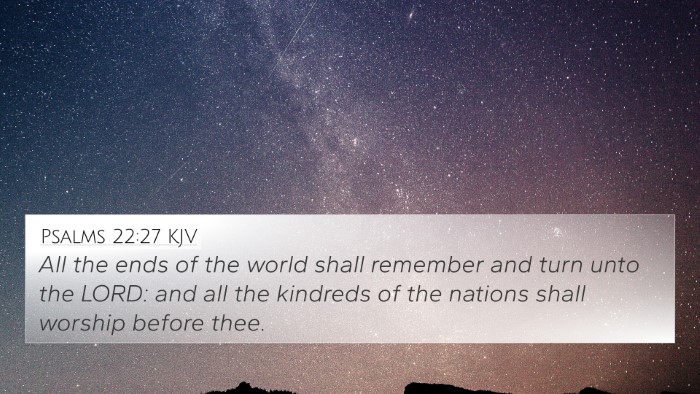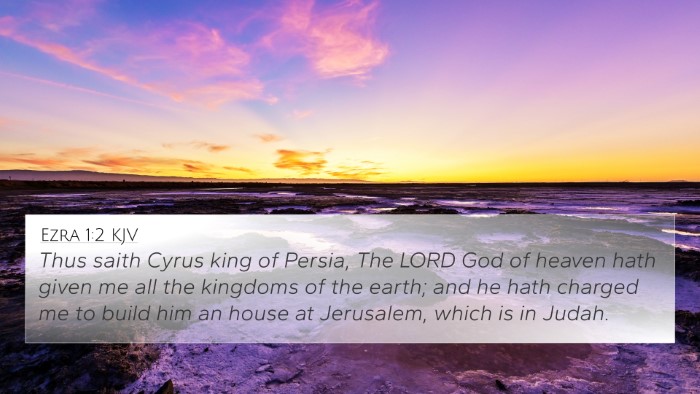Understanding Psalm 145:6
Psalm 145:6 states: "And men shall speak of the might of thy terrible acts: and I will declare thy greatness." This verse emphasizes the dual aspects of worship: recognition of God's awe-inspiring deeds and the commitment to proclaim His greatness.
Meaning and Interpretation
This passage reflects the themes of praise and testimony through the following insights drawn from esteemed public domain commentaries:
-
Matthew Henry's Commentary:
Matthew Henry emphasizes that the "terrible acts" of God denote both His power in creation and His acts of judgment, serving as a basis for human reverence and declaration of His greatness. The acknowledgment of God's might leads believers to share their experiences of His works, thereby fostering worship and testimony among believers.
-
Albert Barnes' Commentary:
Albert Barnes underscores that this verse points to the responsibility of humans to share divine acts. The "might" of God seen in nature and history serves to inspire faith, certainty, and an encouraging framework for others to understand God’s power and love. It suggests a direct link between God's actions and human response in worship.
-
Adam Clarke's Commentary:
Adam Clarke views this verse as a call for communal declaration of God’s greatness. He posits that "men shall speak" implies that believers should continuously engage in discussions about God’s power, influenced by their impressions of His acts. This reflects the process in which intimate knowledge of God leads to public acknowledgment.
Cross-References
Psalm 145:6 correlates with several other Bible verses that enhance the understanding of God's greatness and the necessity of proclaiming His deeds:
- Exodus 15:11: "Who is like unto thee, O Lord, among the gods? who is like thee, glorious in holiness, fearful in praises, doing wonders?"
- Psalms 77:14: "Thou art the God that doest wonders: thou hast declared thy strength among the people."
- Psalms 96:3: "Declare his glory among the heathen, his wonders among all people."
- Isaiah 12:4: "And in that day shall ye say, Praise the Lord, call upon his name, declare his doings among the people, make mention that his name is exalted."
- Matthew 28:19-20: "Go ye therefore, and teach all nations, baptizing them in the name of the Father, and of the Son, and of the Holy Ghost: Teaching them to observe all things whatsoever I have commanded you..."
- 1 Peter 2:9: "But ye are a chosen generation, a royal priesthood, an holy nation, a peculiar people; that ye should shew forth the praises of him who hath called you out of darkness into his marvelous light."
- Revelation 15:3: "And they sing the song of Moses the servant of God, and the song of the Lamb, saying, Great and marvelous are thy works, Lord God Almighty..."
Thematic Connections
This verse invites believers to consider the broader picture of how praise, remembrance, and proclamation of God's acts connect throughout the Bible.
By cross-referencing these scriptures, we can see a consistent theme of declaring God's greatness not merely as an act of worship but also as an essential component of Christian life and community. Wherever we look, from the ancient texts of the Old Testament to the letters of the New Testament, the importance of sharing God's works appears as a unifying thread in God's word.
Practical Application
How can we apply the truths from Psalm 145:6 in our lives today?
- Engagement in Worship: Commit to declaring God's great deeds in personal and communal settings.
- Testimony Sharing: Use personal testimonies as a tool for outreach and encouragement among fellow believers.
- Daily Remembrance: Practice mindfulness of God's acts daily, prompting a heart of gratitude and worship.
Conclusion
Psalm 145:6 beautifully encapsulates the essence of a believer's journey: from recognition of God's powerful deeds to the active proclamation of His greatness. Let this verse serve as a reminder to continually seek connections between scripture, affirming our faith in the God who acts mightily and transforms lives.


